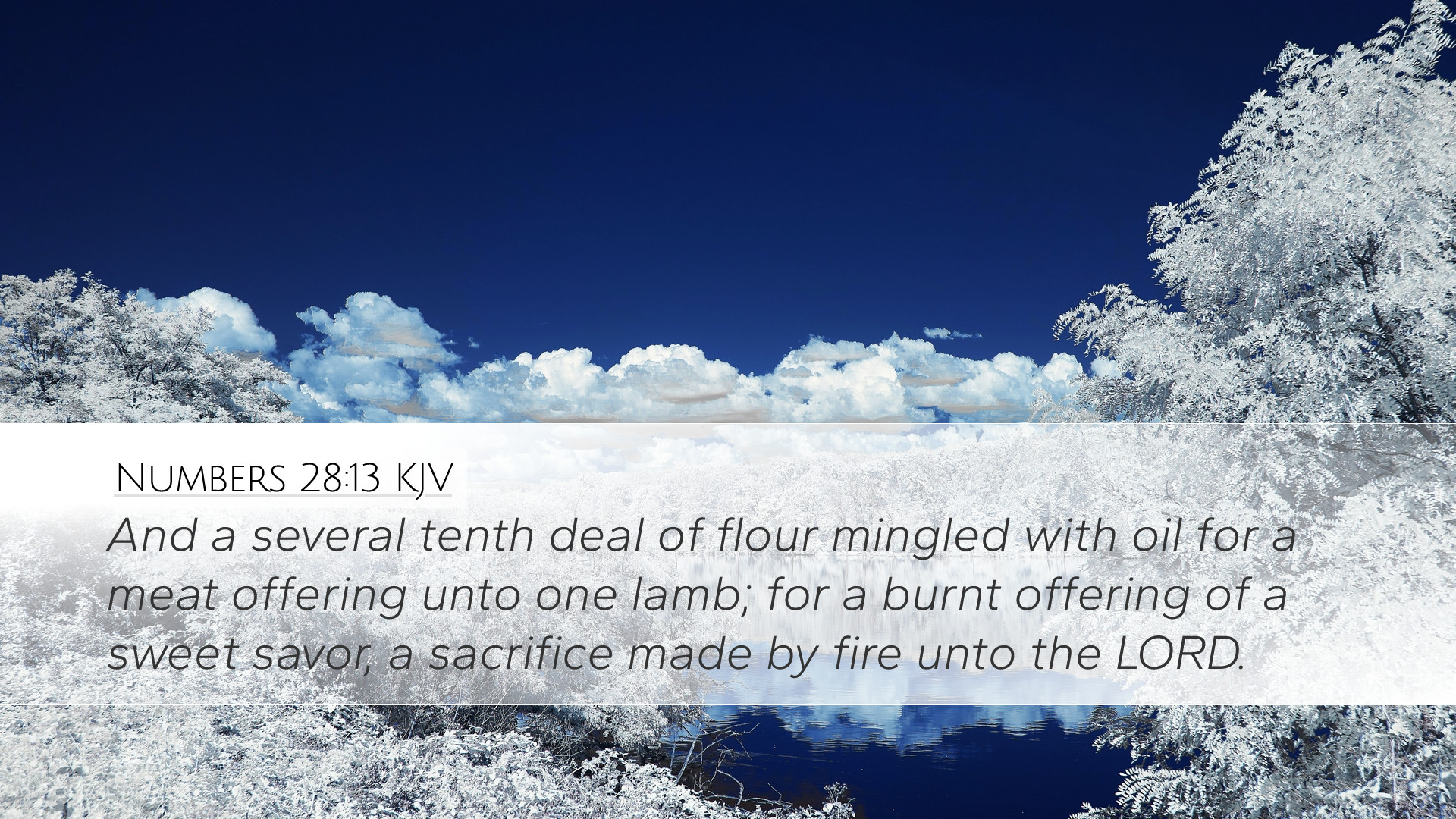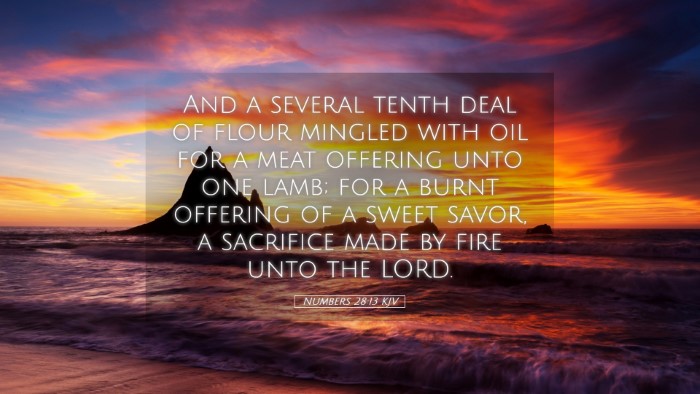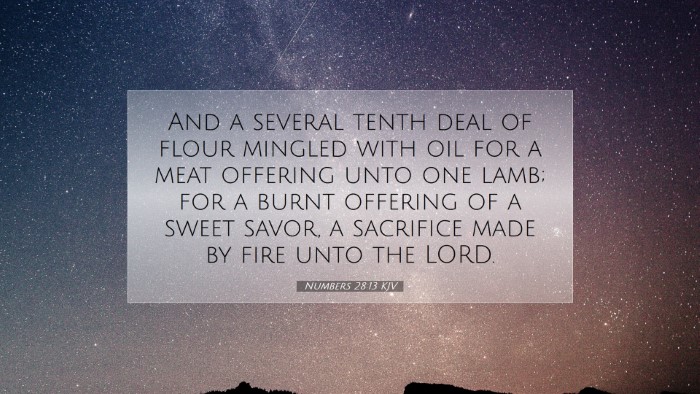Commentary on Numbers 28:13
Numbers 28:13 states: "And a drink offering shall be offered with each lamb; a fourth part of a hin of wine for the one lamb; and for the other lamb a fourth part of a hin of wine, as a offering of sweet savor unto the LORD."
Contextual Background
This verse is part of the legislative instructions given to the Israelites regarding sacrificial offerings and the prescribed rituals for worship in the tabernacle. It reflects the broader theme of divine order in worship and the importance of ritual in affirming one's relationship with God.
General Insights
-
Significance of Animal Sacrifice:
Matthew Henry remarks on the importance of the lamb as a symbol of purity and innocence in sacrifice, foreshadowing the ultimate sacrifice of Christ. He notes the mandatory nature of such offerings, which were a vital aspect of Old Testament worship.
-
Drink Offerings:
Albert Barnes elaborates on the importance of the drink offering as a fulfillment of a requirement to accompany burnt offerings. It signifies the total dedication of oneself to God, marking the sacrifice with a gesture of gratitude and devotion.
-
Ratio of Wine:
Adam Clarke points out that the specific measurement of wine (a fourth part of a hin) implies careful consideration in worship rituals. The exactness indicates God's desire for order and precision in the worship of His people.
Theological Implications
-
Covenantal Relationship:
Commentators agree that these offerings signify the covenantal relationship between God and Israel. They serve not just as acts of worship but as reminders of God's provision and the people's commitment to uphold the statutes given to them.
-
Foreshadowing Christ:
In the New Testament interpretation, these offerings are seen as precursors to the ultimate sacrifice of Jesus Christ, the Lamb of God. The normalization of sacrifice in Numbers provides profound insights into the redemptive narrative that unfolds in the Gospels.
Practical Applications
-
Dedication in Worship:
Pastors and church leaders should encourage congregants to understand the critical nature of consecration in worship. Just as the Israelites brought their offerings as a sweet savor to God, modern believers are called to offer themselves in total devotion.
-
Ritual and Reverence:
Students of theology and scripture can derive lessons on the significance of ritual in contemporary worship. This text highlights not only what is offered but how it is offered—a heart full of reverence and a life dedicated to God.
Conclusion
Numbers 28:13 is a profound reminder of the elements of worship that require our attention: the act of giving, the significance of what we offer, and the heart behind the offering. As we reflect on these ancient practices, we recognize their relevance today in our relationship with God, illuminating the path toward a deeper understanding of His holiness and our response in faith.


